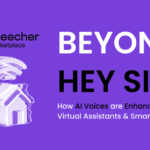Voice cloning technology, once confined to the realm of science fiction, has rapidly become a reality. This powerful tool can create highly realistic synthetic voices that mimic individuals with astonishing accuracy. While this technology has potential applications in fields like entertainment and accessibility, it also raises serious concerns about privacy and security.
As voice cloning becomes more sophisticated, the risks associated with its misuse grow. Malicious actors can exploit this technology to impersonate individuals, spread misinformation, and commit fraud. From deepfakes that could sway elections to identity theft schemes that target unsuspecting victims, the potential consequences of voice cloning are far-reaching.
My Proven Way to Make $100-$200 Per Day With 0 Investment – Watch THIS FREE Video to START >>

Identity Theft and Fraud
Identity theft, a crime as old as civilization, has evolved with technology. It involves stealing someone’s personal information to assume their identity and commit fraudulent activities. This can lead to financial ruin, emotional distress, and even legal trouble.
Voice cloning technology has amplified the threat of identity theft. By creating synthetic voices that sound indistinguishable from the real thing, malicious actors can impersonate individuals and trick them into revealing sensitive information. For example, a scammer might call a victim pretending to be a bank representative and ask for their account details. Or, they could impersonate a loved one in distress, urging the victim to wire money urgently.
Real-world cases have demonstrated the potential for voice cloning to facilitate identity theft. In one notable incident, a scammer used a deepfake voice to impersonate a CEO and trick his assistant into transferring hundreds of thousands of dollars. Another case involved a fraudster who used voice cloning to impersonate a relative and convince a victim to invest in a non-existent venture. These examples highlight the serious risks posed by this technology.
Deepfakes and Misinformation
Deepfakes, a term coined from “deep learning” and “fake,” refer to manipulated media content, including audio, video, and text, that appears highly realistic but is entirely fabricated. Voice cloning, a subset of deep learning, can be used to create deepfake audio, where a person’s voice is synthesized to say things they never actually said.
The dangers of deepfakes are far-reaching. They can spread misinformation and disinformation on a massive scale, undermining trust in institutions and individuals. For instance, a deepfake video of a political leader making controversial or harmful statements could destabilize a nation. Additionally, deepfakes can damage reputations by creating false narratives or compromising personal privacy.
Deepfake scandals have made headlines in recent years. One notable example involved the creation of deepfake videos of celebrities engaged in explicit acts. These videos were used for blackmail and extortion, causing significant emotional distress to the victims. Another case involved the use of deepfake audio to impersonate a political figure and spread false information about a rival candidate. These incidents demonstrate the potential for deepfakes to be weaponized for malicious purposes.
My Proven Way to Make $100-$200 Per Day With 0 Investment – Watch THIS FREE Video to START >>
Surveillance and Privacy Invasion
Voice cloning technology can be a powerful tool for surveillance. By analyzing vast amounts of audio data, it can be used to identify and track individuals based on their unique voices. This raises serious concerns about privacy and personal freedoms.
Eavesdropping on conversations is one potential application of voice cloning for surveillance. Malicious actors could use this technology to intercept private phone calls, meetings, or even conversations in public places. Additionally, voice cloning can be used to track people’s movements by analyzing audio recordings from surveillance cameras or other devices. This could lead to a constant feeling of being watched and monitored.
The implications for privacy are profound. Voice cloning can erode the right to privacy, making it difficult for individuals to have private conversations or conduct their affairs without fear of being monitored. This can create a sense of unease and mistrust, as people may feel that their personal information is vulnerable to exploitation.
Governments could also use voice cloning for surveillance purposes. For example, they might deploy audio surveillance systems in public spaces to monitor citizens’ conversations and track their movements. This raises concerns about government overreach and the potential for abuse of power.
Exploitation and Harassment
Voice cloning technology can be used to harass individuals in a variety of ways. Cyberbullies might use deepfake audio to create embarrassing or harmful content about their targets. Stalkers could use voice cloning to impersonate loved ones or friends and manipulate their victims. Threatening behavior, such as making false accusations or issuing threats, can also be carried out using voice cloning.
The psychological impact of voice cloning harassment can be devastating. Victims may experience anxiety, depression, and a loss of trust in others. The fear of being impersonated or targeted by malicious actors can lead to significant emotional distress. In some cases, victims may even be forced to change their phone numbers or move to a new location to escape harassment.
Addressing voice cloning harassment presents significant legal challenges. Current laws may not be sufficient to deal with this new form of cybercrime. Prosecuting perpetrators can be difficult, as it may require identifying the individuals behind the deepfake technology. Additionally, victims may face challenges in proving that the harassment they experienced was caused by voice cloning.
To address these challenges, lawmakers and law enforcement agencies need to develop new legal frameworks and investigative techniques to combat voice cloning harassment. This may involve strengthening existing cybercrime laws, investing in forensic tools to identify deepfake creators, and providing victims with better support and protection.
Ethical Considerations and Future Implications
Voice cloning raises profound ethical dilemmas. The potential for misuse, as demonstrated by the examples discussed earlier, is a major concern. The technology can be used to spread misinformation, harm reputations, and invade privacy, leading to significant societal consequences.
The future of voice cloning is likely to be marked by further advancements. As deep learning algorithms become more sophisticated, the quality and realism of synthetic voices will continue to improve. This could make it even more difficult to distinguish between genuine and fake audio.
Addressing the privacy concerns associated with voice cloning requires a multifaceted approach. One potential solution is to develop robust detection and verification technologies that can identify deepfakes and authenticate audio recordings. Additionally, policymakers and industry leaders need to work together to establish ethical guidelines and regulations governing the use of voice cloning technology. This could include restrictions on the creation and distribution of deepfakes, as well as measures to protect individuals’ privacy rights.
Furthermore, raising public awareness about the risks of voice cloning is crucial. Educating individuals about the technology and its potential dangers can help them to be more vigilant and avoid falling victim to scams or other harmful activities. By taking a proactive approach to addressing these ethical considerations and future implications, we can mitigate the risks associated with voice cloning and ensure that this powerful technology is used responsibly.
My Proven Way to Make $100-$200 Per Day With 0 Investment – Watch THIS FREE Video to START >>
Conclusion
The privacy concerns associated with voice cloning are significant and far-reaching. As the technology continues to advance, it is essential to address these issues proactively. By developing robust detection and verification technologies, establishing ethical guidelines, and raising public awareness, we can mitigate the risks and ensure that voice cloning is used responsibly.
Ultimately, the future of voice cloning depends on our collective efforts to harness its potential benefits while safeguarding individual privacy and security. By working together, we can shape a future where this powerful technology is used for good, rather than harm.









